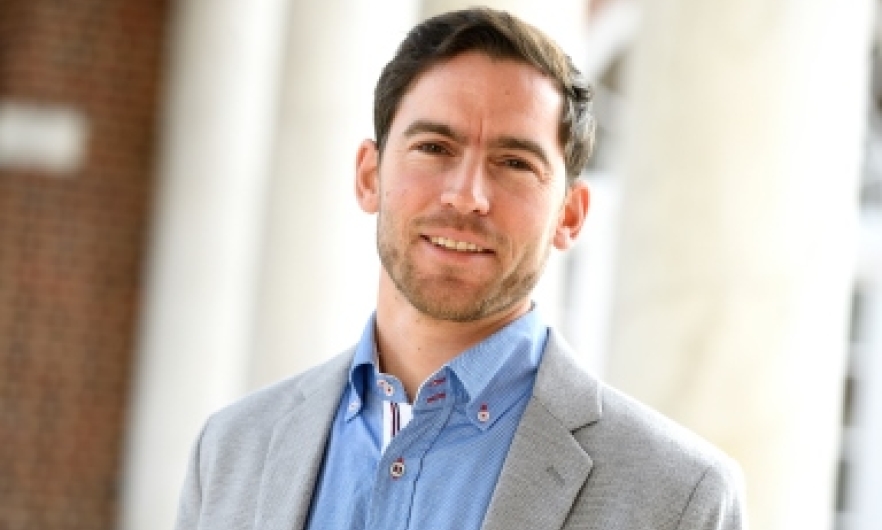Prasse Receives CAREER Award

Carsten Prasse, assistant professor in the Department of Environmental Health and Engineering, has been named a recipient of the National Science Foundation’s Early CAREER Award, which recognizes early-stage scholars with high levels of promise and excellence. Carsten’s award project, titled “Development of a Novel Approach for the Identification of Toxic Byproducts and their Precursors in Oxidative Drinking Water Treatment,” aims to identify toxic byproducts and their precursors in drinking water treated with chemical oxidants, which can adversely impact human health.
The project gives us the opportunity to engage with communities in Baltimore on issues related to drinking water contaminants and how to address them.
- Carsten Prasse
"I am very honored and humbled to receive the NSF CAREER award. The funding will allow us to expand our research on novel approaches to identify toxic chemicals in drinking water," says Prasse. "In contrast to existing methods that focus on the detection of a limited number of chemicals, our approach will enable a more holistic assessment of drinking water quality. Equally important, the project gives us the opportunity to engage with communities in Baltimore on issues related to drinking water contaminants and how to address them."
Carsten’s research focuses on the occurrence and fate of organic contaminants in the urban water cycle and their impact on environmental and human health. Current projects include developing new technologies to remove contaminants from wastewater and drinking water, developing methods to assess the impact of chemical exposures to human health, and investigating the presence of anthropogenic chemicals in manure from concentrated animal feeding operations (CAFOs) as well as biosolids generated in municipal wastewater treatment plants.
Environmental Health and Engineering is a cross-divisional department spanning the Bloomberg School of Public Health and the Whiting School of Engineering. This hybrid department is uniquely designed to lead pioneering research and prepare the next generation of scholars to solve critical and complex issues at the interface of public health and engineering.
